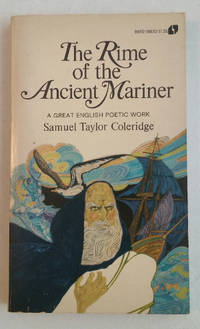The Mystic Mariner
In
the days of my youth when
I
had started asking myself questions
About
the riddles of existence,
I
met a mariner, ancient in his ways
And
mystic in his understanding about life.
He
invited me to accompany him
On
a long journey and he would
Give
answers to all my questions.
Like
a kid, I jumped in the air,
Willing
to touch the stars and kiss the clouds.
The
first day, we talked about poetry.
He
said that positive mental energy
Is
found in the verses of great poets
Just
like the energy found in the music
Of
Bach or Mozart.
The
following weekend, we discussed religion
He
said that religion and philosophies
Teach
that man can become the Christ,
Buddha,
Shiva and Zoroaster.
While
the dolphins were swimming gracefully
Among
the great waves of the sea,
I
asked the mystic mariner,
“What
is man`s greatest power?”
He
remained quiet for a long time,
Looked
at the sky and replied,
“Silence”
Then
he spoke about training the mind……
“Man
must train his mind to pick up
What
is good, what is right.
The
power of visualization must be used
As
an exceptional talent and gift.
It
must be nurtured and jealously guarded.”
One
Sunday, we were having breakfast
Comprised of fish curry, salads and boiled rice.
I
quietly asked him about diseases
Affecting
man across the planet.
He
became pensive, as if lost in his thoughts,
Then,
he looked at me in the eyes and said,
“Diseases
are often the purification of
Mind
and body from the toxins
That
have been accumulated.
It
is necessary that man suffers from time to time.”
After
a few weeks spent in the company
Of
waves that dance in an interplay of colors vibrant
And
the rays of the sun teasing my half-naked body,
I
was in a happy mood and laughed
For
reasons unknown to me.
The
mystic mariner touched my bare shoulders,
Drew
me closer and closer to him and whispered,
“Keep
laughing, seriousness reduces life.
Be
happy darling, I love you.”
“I
love you too honey.”
Since
then, I have spent the rest of my life
In
the bosom of the sea, visiting far away shores
With
my mystic mariner as companion.

-- Walter Hallenborg
The Ancient Mariner -- Patrick Anthony Pierson
Mask of the Ancient Mariner -- Patrick Anthony Pierson
While Samuel Taylor Coleridge was walking with his friends William and Dorothy Wordsworth they discussed George Shelvocke's 1726 narrative "A Voyage Round The World by Way of the Great South Sea," an account of his 1719-1722 privateering expedition against the Spanish and his shipwreck on Más a Tierra ("Closer to Land")(modern Robinson Crusoe Island off the coast of Chile, where Alexander Selkirk had been marooned from 1704-1709 -- the inspiration for Daniel Defoe's 1719 novels The Life and Strange Surprizing Adventures of Robinson Crusoe, of York, Mariner" and its sequel "The Farther Adventures of Robinson Crusoe; Being the Second and Last Part of His Life, And of the Strange Surprizing Accounts of his Travels Round three Parts of the Globe"). It included an account of the slaying of a black albatross by his 2nd-in-command. William Wordsworth suggested that Coleridge should write a poem about "spectral persecution" by "the tutelary spirits" as a consequence of "some crime," such as the needless slaying of the albatross. By the time the trio finished their walk, the poem had taken shape in Coleridge's ind, and he wrote "The Rime of the Ancyent Marinere" in 1797-98. It was included in the seminal "Lyrical Ballads, with a Few Other Poems" (1798) by Wordsworth and Coleridge. In the course of the poem the assassin and the crew were mercilessly punished for his deed until he achieved an ecological epiphany. The mariner's last words were:
ReplyDeleteHe prayeth well, who loveth well
Both man and bird and beast.
He prayeth best, who loveth best
All things both great and small;
For the dear God who loveth us,
He made and loveth all.
Though Wordsworth quibbled about some aspects of the poem, such as "the old words and the strangeness" of the narrative and "that the imagery is somewhat too laboriously accumulated," and suggested that it be replaced by "some little things which would be more likely to suit the common taste" if a 2nd edition were published, he nevertheless included it in the 2nd edition despite Coleridge's own objections, claiming that it contained "many delicate touches of passion, and indeed the passion is every where true to nature, a great number of the stanzas present beautiful images, and are expressed with unusual felicity of language; and the versification, though the metre is itself unfit for long poems, is harmonious and artfully varied, exhibiting the utmost powers of that metre, and every variety of which it is capable. It therefore appeared to me that these several merits (the first of which, namely that of the passion, is of the highest kind) gave to the Poem a value which is not often possessed by better Poems."